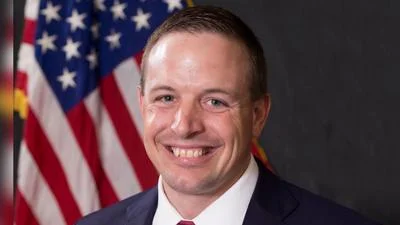Daniel Knodl, Wisconsin State Representative for 24th District | Official website
Daniel Knodl, Wisconsin State Representative for 24th District | Official website
According to the Wisconsin State Legislature's official website, the bill was described as follows: "limiting liability relating to traffic control devices for manufacturers and others".
The following is our breakdown, based on the actual bill text, and may include interpretation to clarify its provisions.
In essence, this bill introduces a limitation of liability for manufacturers, distributors, sellers, installers, and owners of traffic control devices. If these devices comply with specifications in the traffic control devices manual by the Department of Transportation and operate as intended, these parties are not liable for any resulting damages, including claims of negligence, strict liability, and breach of warranty. However, liability can be established if it is proven by clear and convincing evidence that, at the time of damage, the device did not meet the manual's specifications or function as intended. The bill also provides a rebuttable presumption of compliance if the involved parties show adherence to the manual's standards and authorized any deviations in writing by the appropriate authorities.
The bill was co-authored by Senator Van H. Wanggaard (Republican-21st District), Representative Bob G. Donovan (Republican-61st District), Representative Benjamin Franklin (Republican-88th District), and Representative John Spiros (Republican-86th District). It was sponsored by Senator Dan Feyen (Republican-20th District) and Senator Cory Tomczyk (Republican-29th District).
Daniel Knodl has co-authored or authored another 95 bills since the beginning of the 2025 session, with none of them being enacted.
Knodi, a Republican, was elected to the Wisconsin State Assembly in 2025 to represent the state's 24th Assembly district, replacing previous state representative Paul Melotik.
In Wisconsin, the legislative process starts when a senator, constituent, group, or agency proposes an idea for a bill. After drafting, the bill is introduced, numbered, and referred to a committee for review and public input. If approved, it moves through three readings and votes in both the Senate and Assembly. Once both chambers pass the same version, the bill goes to the governor, who can sign it, veto it, or let it become law without a signature. Only a small share of bills introduced each session ultimately become law. You can learn more about the Wisconsin legislative process here.
| Bill Number | Date Introduced | Short Description |
|---|---|---|
| AB203 | 04/23/2025 | Limiting liability relating to traffic control devices for manufacturers and others |
| AB188 | 04/15/2025 | Reduction of penalty surcharge when certain fines or forfeitures reduced. (FE) |
| AB180 | 04/15/2025 | Requiring the Department of Health Services to seek any necessary waiver to prohibit the purchase of candy or soft drinks with FoodShare benefits. (FE) |
| AB169 | 04/08/2025 | Various changes to the unemployment insurance law. (FE) |
| AB134 | 03/13/2025 | The effective date of certain provisions contained in 2023 Wisconsin Act 126 |
| AB123 | 03/11/2025 | Calculation of miles for purposes of relocation of a child 100 miles or more from the other parent in an action affecting the family |
| AB102 | 03/03/2025 | Designating University of Wisconsin and technical college sports and athletic teams based on the sex of the participants |
| AB100 | 03/03/2025 | Designating athletic sports and teams operated or sponsored by public schools or private schools participating in a parental choice program based on the sex of the participants |
| AB75 | 02/28/2025 | Department of Justice collection and reporting of certain criminal case data. (FE) |
| AB28 | 02/17/2025 | Special registration plates with white lettering on a black background. (FE) |
| AB5 | 02/03/2025 | Requiring school boards to make textbooks, curricula, and instructional materials available for inspection by school district residents |
| AB2 | 02/03/2025 | Requiring school boards to adopt policies to prohibit the use of wireless communication devices during instructional time |



 Alerts Sign-up
Alerts Sign-up